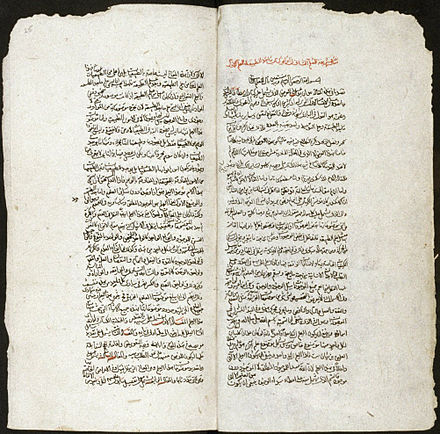Most of Iraqi students are to read about Al-Farabi and his bizarre instrument in primary school. The story talks about Al-Farabi showing his new invented musical instrument to some people. He would play some tunes that everyone in the room would go madly laughing because of it. Later, he would play different tunes when everyone would start crying. Finally, he would play tunes that would leave everyone falling asleep quickly and deeply. How could he do that?

The time of the Islamic Civilization is full of bright names, and Abū Naṣr Muḥammad ibn Muḥammad al Fārābī is one of these names. He is known in Latin as Alfarabius. His contribution in philosophy, physics, music, and else are enormous and paved the way to many later to-become thinkers all around the world.

Al-Farabi (873?-950) was born in nowadays-Uzbekistan. He studied in Khorasan, Iran, before moving to Baghdad and being taught by Christian Syrians experts in Greek philosophy. He studied logic, medicine, and sociology. Being the center of knowledge and inventions by that time, Baghdad helped AL-Farabi to establish the right mind of a thinker. This teaching led to the fact that AL-Farabi would become one of the first Islamic thinkers to transmit to the Arab world the doctrines of Plato and Aristotle—a fact that influenced later great Islamic thinkers and philosophers as Avicenna and Averroes.
There was a brilliance of Al-Farabi interpreting the ideas of the older Greek philosophers to what it was suitable with the Muslim beliefs; yet, keeping the essence of the original thought and the modified one. He was the first Islamic philosopher to advocate the primacy of philosophical truth over revelation. In contrary to the belief of various other religions, he claimed that philosophical truth is the same throughout the world. Being influenced by Aristotle and Neoplatonist Roman philosopher Plotinus, Al-Farabi hypothesized a Supreme Being (being in and of itself) who had created the world through the exercise of rational intelligence. He believed that it was related to God only to the extent that God is a principle of absolute being.
Furthermore, he gave more attention to political theory than any other Islamic philosopher by adopting the Platonic system (as developed by Plato in Republic and laws) to the contemporary Muslim political situation in The Perfect City.

Al-Farabi wrote over 100 works varying in topics of alchemy, logic, music, philosophy, physics, and psychology. In Alchemy, he wrote The Necessity if the Art of the Elixir. For logic, he discussed topics of future contingents, the relation between logic and grammar; he is accredited with categorizing logic into Idea group and Proof group. As for music, he wrote Kitab al-Musiqa (The Book of Music) where he represents philosophical ideas about music, its cosmic qualities, and its influence. Al-Farabi seems influenced by the Pythagorean theory of harmonic ratios in this book. He even dealt with music therapy and how music can affect the soul (this explains his bizarre instrument).

In philosophy, Al-Farabi was the founder of his own school of early Islamic philosophy. It moved from metaphysics to methodology, uniting theory and practice. As when philosophy is linked politics, he liberated practice from theory. Additionally, Al-Farabi wrote a short treatise “On Vacuum” in physics. There, he thought that the volume of the air can expand to fill an available space.
Finally, he stated that “an isolated individual could not achieve all the perfections by himself, without the aid of other individual…to achieve what he can of that perfection, every man needs to stay in the neighborhood of others and associate with them” in his dealing with social psychology. Furthermore, he distinguishes between dream interpretation and the nature and cause of dreams in his treatise On the Cause of Dreams.
Unfortunately, most of Al-Farabi works have been lost. Many other have been preserved in Medieval Latin translations. However, Al-Farabi’s name is given to the main-belt asteroid 7057 Al-Farabi in honoring him and his contributions to science and knowledge. 
Al-Farabi, despite the too many centuries apart between us, has achieved immortality in the best way possible: useful knowledge, over-generations influence, and good deeds. His name has become a reference in philosophy, cosmology, logic, and even music. Al-Farabi, as many other scientists and great thinkers do, makes us believe in the possibility of having an answer to any inquiry we would think of. Translation, observation, application, and dare to innovate and advocate new ideas are but steps for success in life dedicated for good.
Farabi is, famously, the letter F of this blog’s Alphabet
References:
- Microsoft ® Encarta ® 2009. © 1993-2008 Microsoft Corporation
- https://www.wikiwand.com/en/Al-Farabi#/Psychology,_the_soul_and_prophetic_knowledge
- https://thegreatthinkers.org/al-farabi/introduction/
- https://www.famousscientists.org/abu-nasr-al-farabi/
- https://ssd.jpl.nasa.gov/sbdb.cgi?sstr=7057;orb=1
